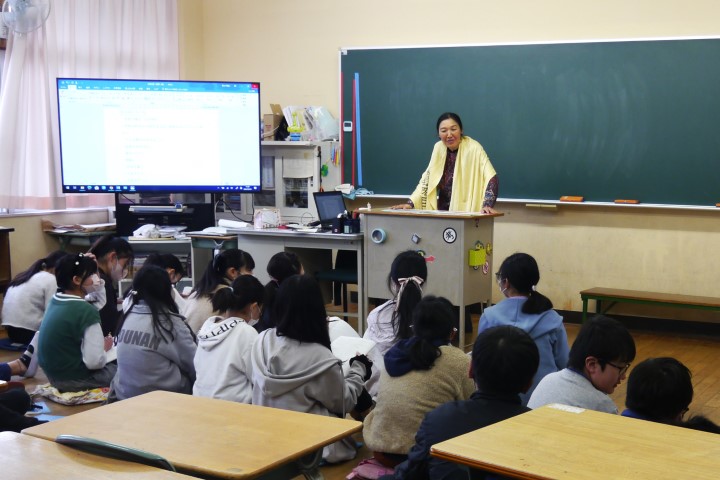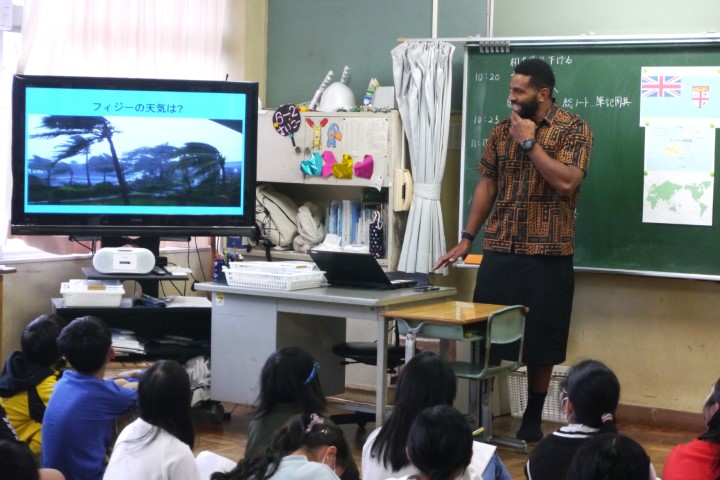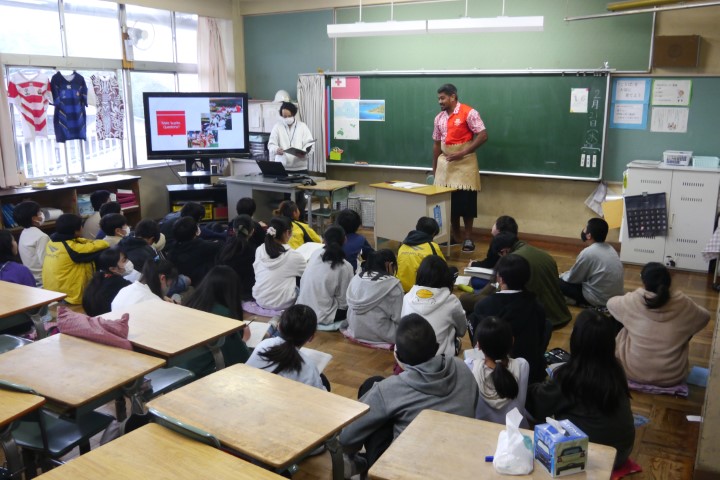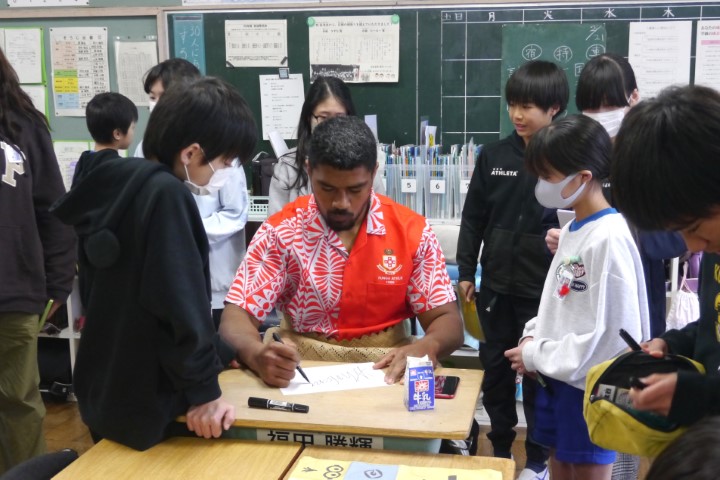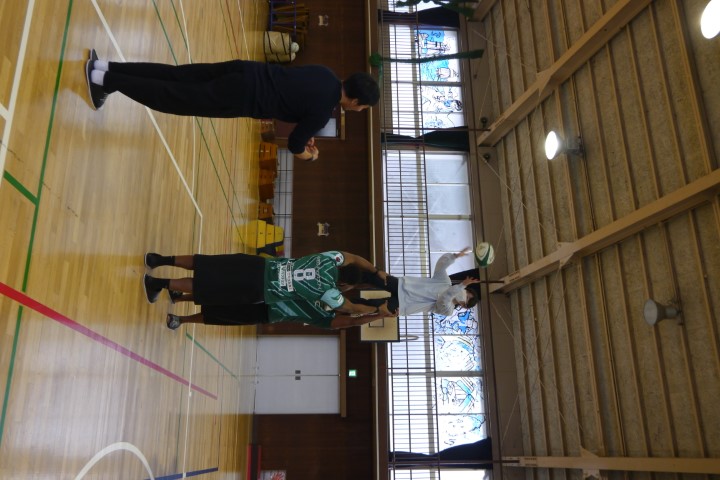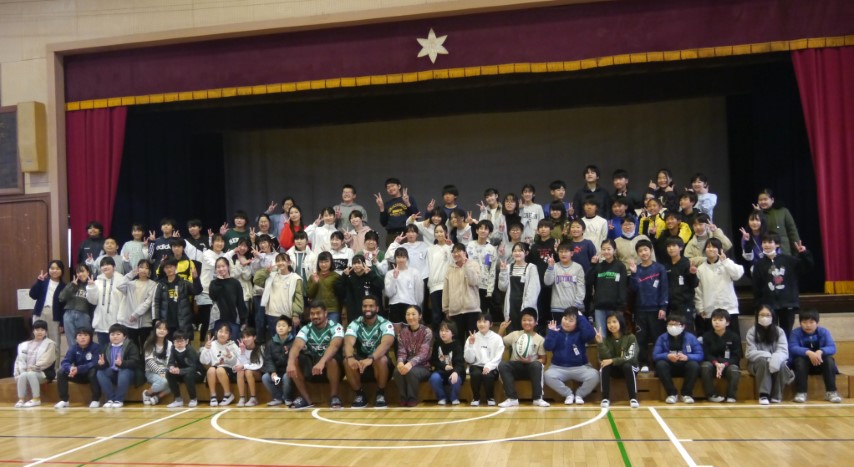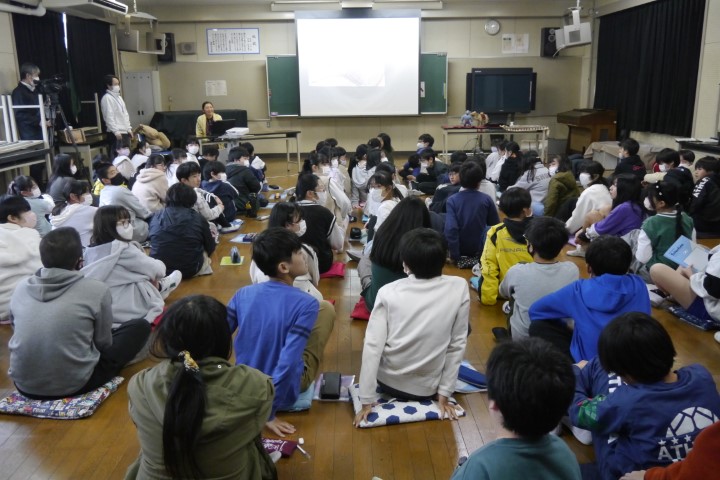
Venue: Konoyama Elementary School (audio-visual room, each classroom, gymnasium)
Target: 6th graders (classes 1-3)
Lecturers: Ms. Masayo Yamaguchi, Mr. Aseri Masivou (from Fiji), Mr. Viliami Lutua Ahofono (from Tonga) (No. 23-20)
AIRA received a cooperation request from Konoyama Elementary School to send lecturers for a program with the aim of "nurturing leaders of a global society by listening to the experiences of people living and working abroad, and helping to expand the perspective to step into the world in the future by being exposed to different cultures." AIRA introduced three lecturers for this purpose.
The program consisted of a lecture for all 6th graders, followed by country-specific lectures for three classes, and interaction during “Exchange Time”.
<Lecture: "The Life of the Iranian People">
Ms. Yamaguchi lived in Iran from 2002 until she returned to Japan in 2023. She lives in Abiko city now. She talked about the "life of the Iranian people" based on her experience of living in Iran for 20 years. She gave lectures, using images, on Iranian folk crafts (textiles, camel decorations in “the Arabian Nights”, etc.), climate, religion, architecture, customs such as year end's and New Year's cleaning, and food. She explained them to the students with their familiar examples.
(Example) “The Arabian Nights” are Iranian stories. Pajamas (pay/legs + jama/cloth), cucumbers(胡瓜), sesame (胡麻), and walnuts (胡桃) came from Iran.
*Kanji character '胡’ referred to the Sogdian people of Iranian origin west of Pamir.
She also explained the differences in education between Japan and Iran.
(Example) From elementary school through high school, boys and girls are educated separately, and university is coeducational. The school year starts in September, and ends in June of the following year.
<Country-specific Lectures>
1. Ms. Yamaguchi: About Iran
She introduced things related to daily life; for religious reasons, dogs are considered unclean and are not kept. But parakeets are kept.; and Iranians are very good at emotional expressions.
2. Mr. Aseri: About Fiji
He introduced his experience of living in New Zealand from the age of 15 to play rugby and study. He talked about the life and food with images. Some students asked him how long he practiced rugby and why he chose Japan.
3. Mr. Viliami: About Tonga
He introduced his career of joining NEC Green Rockets Tokatsu after graduating from a Japanese university. He also used images to talk about the life and culture of Tonga, where coconut milk is used to flavor dishes. To a question from a student, "Why are you so tall (186 cm)?", he gave a unique answer, "Drinking coconut milk made me tall."
<School Lunch Experience and “Exchange Time”>
The lecturers ate school lunch with the children. The rugby players ate it up deliciously.
During “Exchange Time” after lunch in the gym, some students experienced catching a rugby ball while they were lifted-up at the lineout. There were so many applicants who wanted to try it that they chose the participants by rock-paper-scissors. They had a fun time interacting with each other.
Many sixth graders said that they became interested in foreign countries after hearing about foreign foods, lifestyles, and customs. It seems that they were able to contribute to the purpose of the program, which was to "help expand the perspective to step into the world in the future."
(Translated by Rie Hama)

